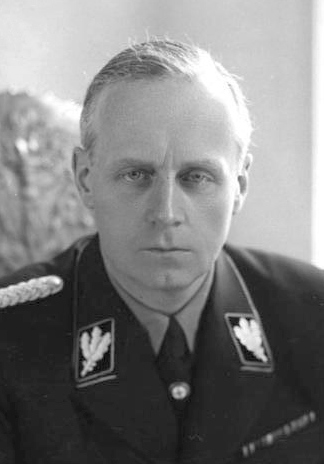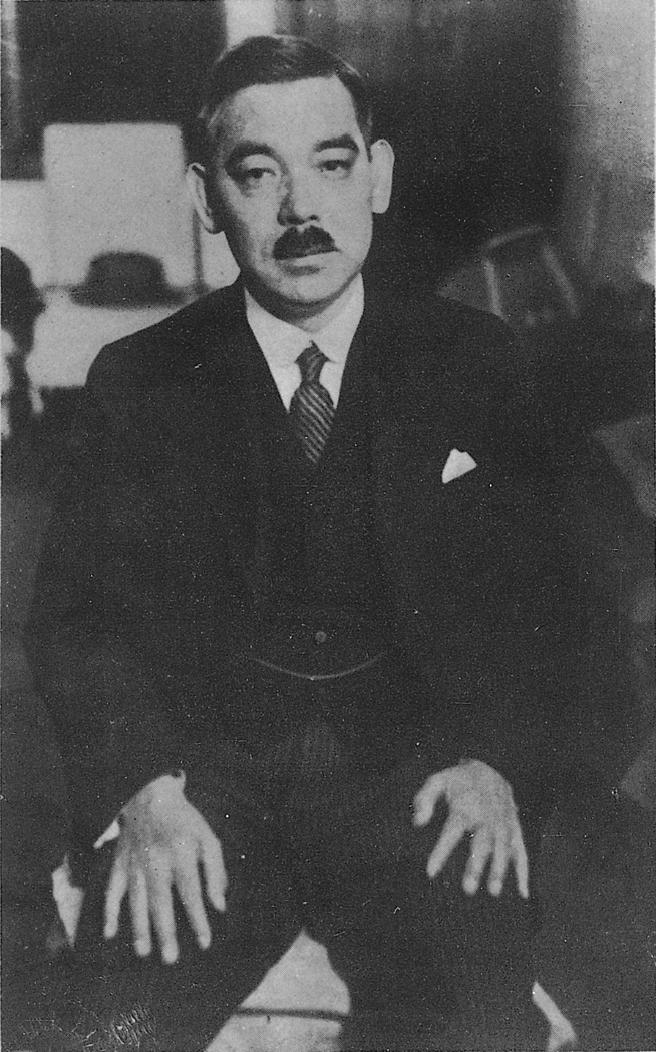Aufz RAM 21/41
Notes on the talk between the Reich Foreign Minister and the Japanese Foreign Minister Matsuoka in. Berlin on 5 April 1941.
[Pages 2 to 3]
Matsuoka then spoke of the general high morale in Germany referring to the happy faces he had seen everywhere among the
526
1882-PS
workers during his recent visit to the Borsig Works. He expressed his regret that developments in Japan had not as yet advanced as far as in Germany and that in his country the intellectuals still exercised considerable influence.
The Reich Foreign Minister replied that at best a nation which had realized its every ambition could afford the luxury of intellectuals, most of whom are parasites, anyway. A nation, however, which has to fight for a place in the sun must give them up. The intellectuals ruined France; in Germany they had already started their pernicious activities when National Socialism put a stop to these doings; they will surely be the cause of the downfall of Britain, which is to be expected with certainty.
In answer to a remark by Matsuoka, that Japan was now awakening and, according to the Japanese temperament, would take action quickly after the previous lengthy deliberation, the Reich Foreign Minister replied that it was necessary, of course, to accept a certain risk in this connection, just as the Fuehrer had done so successfully with the occupation of the Rhineland, with the proclamation of sovereignty of armament, and with the designation from the League of Nations. * * *
[Pages 9 to 11]
The Reich Foreign Minister replied that the new German Reich would actually be built up on the basis of the ancient traditions of the Holy Roman Empire of the German Nation, which in its time was the only dominant power on the European Continent.
In conclusion, the Reich Foreign Minister once again summarized the points he wanted Matsuoka to take back to Japan with him from his trip:
1. Germany had already won the war. With the end of this year the world would realize this. Even England would have to concede it, if it had not collapsed before then, and America would also Rave to resign herself to this fact.
2. There were no conflicting interests between Japan and Germany. The future of both countries could be regulated for the long run on the basis that Japan should predominate in the Far East, Italy and Germany in Europe and Africa.
3. Whatever might happen, Germany would win the war. But it would hasten victory if Japan would enter the war. Such an entry into the war was undoubtedly more in the interest of Japan than in that of Germany, for it offered a unique opportunity which would hardly ever return, for the fulfillment of the national objectives of Japan, a chance which would make it possible for her to play a really leading role in East Asia.
527
1882-PS
1882-PS
Matsuoka replied that he himself could only repeat that he had long been of the opinion that every nation would be offered an opportunity only once in a thousand years. Japan was confronting such an opportunity, and she would have to assume the risk connected with it. She would have to act decisively at the right moment in order to take advantage of this unique opportunity.
Berlin, the 7th of April 1941 Sig. Schmidt
Notes on a meeting of Ribbentrop and Japanese foreign minister Matsuoka, on Germany's victory in Europe, the alignment of German and Japanese interests, and the opportunity for Japan to act in Asia
Authors
Joachim Ribbentrop, von (Minister for Foreign Affairs (1938-45))
Joachim von Ribbentrop
German Foreign Minister of Nazi Germany (1893–1946)

- Born: 1893-04-30 (Wesel)
- Died: 1946-10-16 (Nuremberg)
- Country of citizenship: Germany
- Occupation: diplomat; politician
- Member of political party: Nazi Party
- Member of: Schutzstaffel; Travellers Club
- Participant in: International Military Tribunal (role: defendant)
- Military rank: Oberleutnant
Yosuke Matsuoka (Japanese Foreign Minister)
Yosuke Matsuoka
Japanese politician (1880-1946)

- Born: 1880-03-04 1880-01-01 (Yamaguchi Prefecture) (reason for preferred rank: most precise value)
- Died: 1946-06-26 (Sugamo Prison) (located in the administrative territorial entity: Tokyo)
- Country of citizenship: Japan
- Occupation: diplomat; politician
- Member of political party: Rikken Seiyūkai
- Position held: member of the House of Representatives of Japan
- Educated at: Meiji University; Oakland High School; University of Oregon School of Law
- Place of detention: Sugamo Prison (charge: crime against humanity)
Date: 05 April 1941
Literal Title: Notes on the talk between the Reich Foreign Minister and the Japanese Foreign Minister Matsnoka [sic] in Berlin on 5 April 1941
Defendant: Joachim Ribbentrop, von
Total Pages: 2
Language of Text: English
Source of Text: Nazi conspiracy and aggression (Office of United States Chief of Counsel for Prosecution of Axis Criminality. Washington, D.C. : U.S. Government Printing Office, 1946.)
Evidence Code: PS-1882
Citation: IMT (page 1235)
HLSL Item No.: 450941
Trial Issues
Conspiracy (and Common plan, in IMT) (IMT, NMT 1, 3, 4) IMT count 1: common plan or conspiracy (IMT) IMT count 2: crimes against peace (wars of aggression) (IMT) Wars of aggression
Document Summary
PS-1882: Record of the conference between Ribbentrop and Matsuoka, Japanese Foreign Minister, in Berlin
PS-1882: Schmidt’s notes on conference between von Ribbentrop and Matsuoka, 5 April 1941 : Hitler’s attitude to PÉtain and intentions in respect to France ; Yugoslavia’s political situation; Germany’s certainty of victory; common interests of Germany, Italy, Japan; desirability of Japan’s entry into the war
PS-1882: Conference memorandum with the typewritten signature of Schmidt of Ribbentrop's office, about the conference between the Reich Foreign Minister Ribbentrop and the Japanese Foreign Minister Matsuoka, in Berlin, April 5, 1941.
moment in order to take advantage of this unique opportunity."